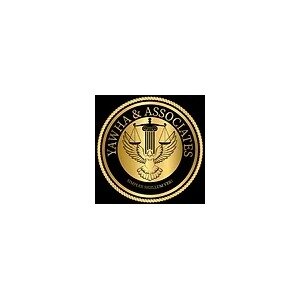Best Government Relations & Lobbying Lawyers in Vanuatu
Share your needs with us, get contacted by law firms.
Free. Takes 2 min.
Or refine your search by selecting a city:
List of the best lawyers in Vanuatu
About Government Relations & Lobbying Law in Vanuatu
Government relations and lobbying in Vanuatu involve efforts made by individuals or organizations to influence public policy, regulations, or decisions made by government officials. This practice is essential for entities seeking to engage with policy makers to promote interests, address specific issues, or drive legislative changes. While lobbying is a common practice in many democracies, it's crucial to understand the legal and cultural context of Vanuatu's unique government and customary systems. Vanuatu's approach to governance and policy-making can present both opportunities and challenges for those involved in lobbying activities.
Why You May Need a Lawyer
Engaging a lawyer in government relations and lobbying can be beneficial in various situations, including:
- Understanding the regulatory framework and ensuring compliance with local laws.
- Negotiating and drafting agreements with governmental bodies.
- Representing your interests in legislative or administrative processes.
- Advising on cultural nuances and local politics that could impact lobbying efforts.
- Navigating potential conflicts of interest and mitigating legal risks.
- Guiding you through ethical considerations and transparency requirements in lobbying activities.
Local Laws Overview
Vanuatu's legal system is a blend of customary laws, common laws influenced by its colonial past, and statutes enacted by Parliament. Key aspects relevant to government relations and lobbying include:
- The focus on transparency and accountability in public administration.
- Regulations on the engagement of foreign entities in lobbying activities.
- The role of customary practices and chiefs, which may influence governmental decisions.
- Anti-corruption measures and policies enforced to maintain fair lobbying practices.
- Compliance with international agreements and regional regulations affecting lobbying activities.
Frequently Asked Questions
What is the role of lobbying in Vanuatu?
Lobbying in Vanuatu aims to influence public policy decisions by engaging with government officials and stakeholders on specific issues or legislation.
Are there specific regulations governing lobbying in Vanuatu?
While there are no comprehensive laws solely dedicated to lobbying, related activities are governed by statutes focusing on transparency and accountability in public administration.
How can foreign entities participate in lobbying activities in Vanuatu?
Foreign entities must adhere to local laws and may need to engage local representatives or partners who understand the cultural and regulatory landscape.
Is lobbying considered a legal practice in Vanuatu?
Yes, lobbying is legal in Vanuatu when conducted transparently and ethically, adhering to relevant laws and regulations.
What ethical considerations are important in lobbying within Vanuatu?
Maintaining transparency, avoiding conflicts of interest, and respecting cultural values and practices are critical ethical considerations.
Does Vanuatu have restrictions on lobbying expenditures?
Lobbying activities should not involve bribery or corruption, and expenditures may be subject to scrutiny under anti-corruption regulations.
Can individuals lodge lobbying efforts or must it be organizations?
Both individuals and organizations can engage in lobbying efforts, although organizations may find it easier to navigate the complexities involved.
How does customary law affect lobbying in Vanuatu?
Customary law, especially involving chiefs and community leaders, can play a significant role in influencing local government decisions.
Who are the key actors in the Vanuatu government to engage for lobbying purposes?
Key actors include government ministers, members of Parliament, and relevant departmental officials dealing with specific sectors or issues.
What is the procedure for arranging meetings with government officials for lobbying?
It often involves formal requests, understanding protocols, and respecting local customs when engaging with government officials.
Additional Resources
For those seeking further information or assistance in government relations and lobbying in Vanuatu, consider the following resources:
- The Ministry of Justice and Community Services, for legal frameworks and guidance.
- The Office of the Prime Minister, for policy directions and public sector engagement.
- Local legal firms specializing in government relations and public policy.
- Business and industry associations that have experience in lobbying activities.
- Regional organizations offering resources on governance and compliance.
Next Steps
If you need legal assistance in government relations and lobbying in Vanuatu, consider undertaking the following steps:
- Identify your goals and objectives for engaging in lobbying activities.
- Consult with a local lawyer who has expertise in government relations to understand your legal options.
- Engage with relevant stakeholders and build relationships to enhance your lobbying efforts.
- Ensure all lobbying activities are conducted transparently and ethically.
- Stay informed about changes in local laws and regulations that could impact your activities.
Lawzana helps you find the best lawyers and law firms in Vanuatu through a curated and pre-screened list of qualified legal professionals. Our platform offers rankings and detailed profiles of attorneys and law firms, allowing you to compare based on practice areas, including Government Relations & Lobbying, experience, and client feedback.
Each profile includes a description of the firm's areas of practice, client reviews, team members and partners, year of establishment, spoken languages, office locations, contact information, social media presence, and any published articles or resources. Most firms on our platform speak English and are experienced in both local and international legal matters.
Get a quote from top-rated law firms in Vanuatu — quickly, securely, and without unnecessary hassle.
Disclaimer:
The information provided on this page is for general informational purposes only and does not constitute legal advice. While we strive to ensure the accuracy and relevance of the content, legal information may change over time, and interpretations of the law can vary. You should always consult with a qualified legal professional for advice specific to your situation.
We disclaim all liability for actions taken or not taken based on the content of this page. If you believe any information is incorrect or outdated, please contact us, and we will review and update it where appropriate.
Browse government relations & lobbying law firms by city in Vanuatu
Refine your search by selecting a city.








